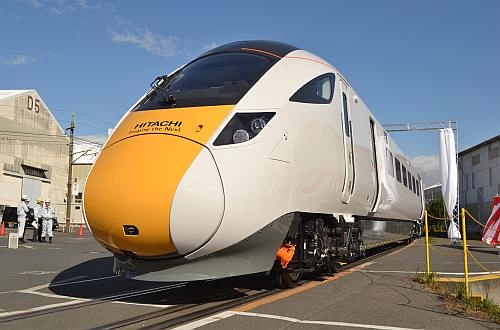The strategy says between 13,000 and 19,000 new electric coaches will be needed between now and 2045. This means that the number of new vehicles being delivered each week will need to be stepped up from four during the five years up to April 2014 to between eight and 12.
Around 3350 new electric coaches are required by April 2019 of which 90% are on order. Beyond this, there are commitments to deliver 428 coaches for the Crossrail project in London, the Intercity Express Programme (IEP) for the East Coast and Great Western franchises, and London – Southend services.
Implementation of the programme will increase the proportion of electric trains on the national network from 69% today to around 95% by 2045. This is in line with the national plan to electrify large parts of the network. However, Network Rail's electrification programme is suffering serious delays, which means the first IEP trains for the Great Western main line from London to Bristol and Cardiff will be delivered before the lines have been electrified.
The report states that government policy is that "rolling stock procurement should, other than in exceptional cases, be franchise-led." However, up to now, the Department for Transport has controlled the type and quantity of trains which franchises can order, and in the case of IEP specified the train design and the method of funding and procurement.
"The report supports the principle that rolling stock procurement should, in most cases, be market-based and franchise-led," says the RSSSG. "By putting train operators and fleet owners at the centre of planning and delivering rolling stock, better value for money can be achieved, as for example is to be the case for the new and additional rolling stock to be procured for the North of England."
The RSSSG includes three rolling stock leasing companies (Angel Trains, Eversholt and Porterbrook), and the Rail Delivery Group which represents passenger and freight operators and Network Rail.

